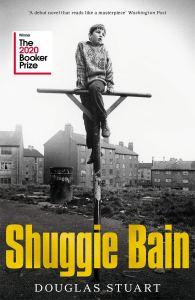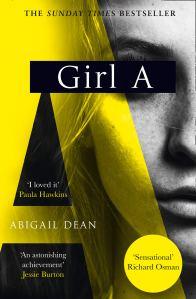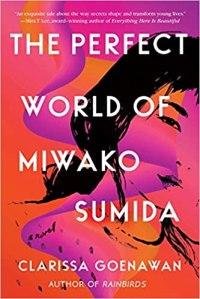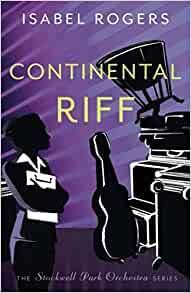It wasn’t planned this way (who has plans any more?) but three of the four novels in my first fiction round-up of 2021 deal with difficult and potentially traumatising subjects. WAIT, DON’T GO! I get that a lot of people are struggling to read and/or looking for lighter material at the moment, but these novels are being widely read and appreciated and doing rather well. While they were obviously signed and sealed before the pandemic, I believe there will always a place for ‘difficult’ books and what they bring us; sure, there’s going to be increased demand for uplifting stories – I made a point of including one here – but it doesn’t follow that nobody can deal with darkness any more.

In the year it spent on my TBR pile, this book went from unknown debut to winner of the 2020 Booker Prize. Covering subjects including addiction, sexual violence, child abuse and neglect (to name but a few), I simply couldn’t face it, and on picking it up last weekend I half expected to put it back down. Instead I found myself completely immersed in the brutally tough world of little Shuggie, his siblings and their mother, Agnes, whose lives are blighted by poverty exacerbated by her alcohol addiction. Make no mistake, this is a shocking and heart-breaking story; it was the superb writing, the incredible vivacity of the voices (there’s a lot of Glaswegian dialect, and readers can cope with it) and my intense emotional engagement with the characters that kept me reading. The experience felt slightly voyeuristic at times, which is not a reflection on the book, although there were more degrading scenes involving women than necessary, and that is. I was consumed by this story in a way I would never have expected – it’s the kind you can never unread.

There have been many books dealing with incarceration and child abuse based on true stories – this reminded me of Nina X, Educated and Room but is nonetheless very distinctive. Being locked up and cruelty towards children are possibly the two subjects I approach with most dread and rarely at that, but this debut novel was recommended by a friend who always gives great tips when I was finding it extremely difficult to get into anything, and it worked. It’s being marketed as a literary thriller, and while the quality of the writing was immediately apparent, I related to it as more of a character novel, becoming invested in main character Lex and her struggle to function as a high-performing adult after escaping – physically, at least – the most horrifying childhood ordeal with her siblings, several of whom also appear. The emotional depth is what made this – I found it very moving.

In this story set in Japan, three young people try to come to terms with, and piece together what led to, the suicide of their friend Miwako. There is no getting away from this novel’s large debt to Murakami’s Norwegian Wood but it shares some of his qualities and veers away – just – from the quirky cuteness that often characterises Japanese novels translated into English, a style I’m not keen on. The author is an Indonesian-born Singaporean and it was written in English, but it has a convincing sense of Japan and its culture which I loved, and there’s a poetic simplicity to the writing that made it more enchanting than depressing, despite the subject. There’s a complex dynamic between the characters and great tenderness in this exploration of grief, guilt and secrecy.

This is where we lighten up! I’m not keeping pace with the antics of the amateur Stockwell Park Orchestra having missed the second in the trilogy but where the latest is concerned, I can’t improve on my original assessment of ‘a retro brand of humor bordering on farce’. They’re at it again, this time on a post referendum but pre-Brexit tour of European cities (good timing or they probably wouldn’t have made it past Kent). The Brexit theme itself feels almost retro at this point – we have no doubt where the author stands on this – but it’s an effective driver of the story. I was enticed by the idea of going anywhere, although being a temperamental writer would not equip me to deal with some of these characters. What I like most about this series is the way it inspires the not very musical reader to seek out classical music; barely read twenty pages in, I was listening to Bruckner’s Seventh Symphony.
Where do you stand on dark books and subjects? Have you read any of these? I’d love to hear your thoughts.

